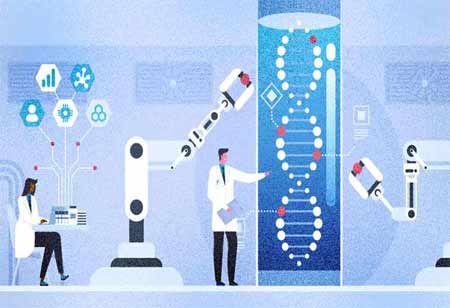Thank you for Subscribing to Healthcare Business Review Weekly Brief
Efficient Administration of Hospital Facilities to Improve Patient Experience

Be first to read the latest tech news, Industry Leader's Insights, and CIO interviews of medium and large enterprises exclusively from Healthcare Business Review
Thank you for Subscribing to Healthcare Business Review Weekly Brief

By
Healthcare Business Review | Wednesday, August 28, 2024
Stay ahead of the industry with exclusive feature stories on the top companies, expert insights and the latest news delivered straight to your inbox. Subscribe today.
Hospital facility management is critical in shaping the overall patient experience and operational efficiency within healthcare settings.
FREMONT, CA: Hospital facility management is crucial for patient satisfaction, operational effectiveness, and healthcare safety. It involves patient-centric design, hygiene, equipment management, safety precautions, green projects, technological integration, and continuous improvement. Collaboration between frontline personnel, facility management, and healthcare administrators is essential for delivering compassionate, high-quality care.
Patient-Centric Facility Design:
The design and layout of hospital facilities significantly impact patient comfort, accessibility, and satisfaction. Patient-centric design principles prioritize creating healing environments that promote privacy, reduce noise levels, and enhance mobility for patients with diverse needs. Well-designed waiting areas, comfortable patient rooms, and intuitive signage contribute to a positive experience by reducing stress and improving navigation within the hospital environment.
Cleanliness and Infection Control:
Effective facility management ensures high cleanliness and infection control standards for patient safety and satisfaction. Regular inspections, staff training, and antimicrobial surfaces help prevent healthcare-associated infections (HAIs) and create a safe healing environment for patients and healthcare professionals.
Efficient Equipment Management:
Proper medical equipment and technology infrastructure management enhances clinical workflows and patient care delivery. Facility managers coordinate equipment procurement, maintenance schedules, and asset tracking systems to ensure availability, functionality, and compliance with safety standards. Timely repairs, equipment upgrades, and integration of digital health technologies support accurate diagnosis, treatment efficiency, and continuity of care, contributing to improved patient outcomes.
Safety and Security Measures:
Hospital facility managers prioritize safety and security measures to protect patients, staff, and visitors.



